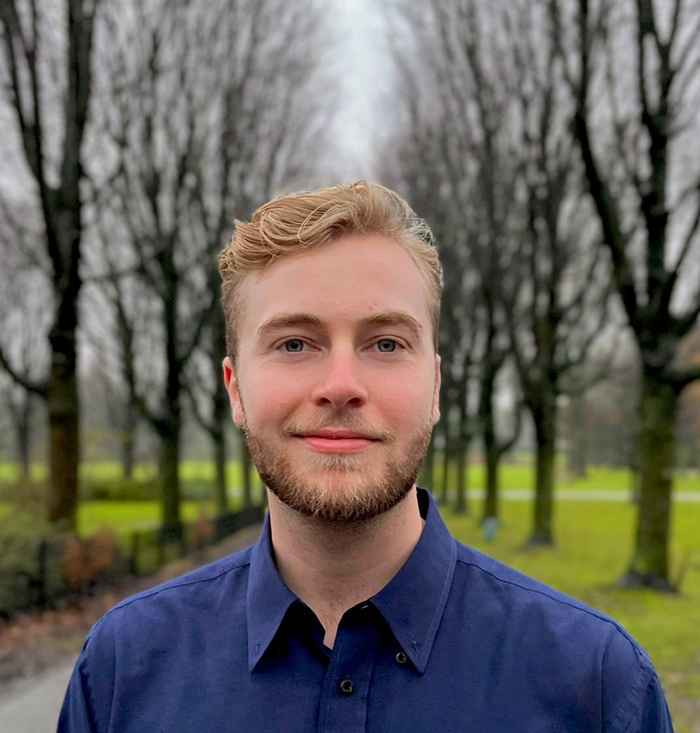Mats van Uum
"Some of the fiercest political debates often took place in Amsterdam’s parks, at student bars, or during late-night dinners"
When you think back to your time in PPLE what is the first thing you think about?
Looking back at my time in PPLE, the first thing that comes to mind is the great community of friends, fellow students, and teaching staff that encouraged critical thinking. Unlike what I experienced at other programmes, the people of PPLE together created an atmosphere of social learning by challenging each other’s existing beliefs from their own background. This was not limited to the classroom. Some of the fiercest political debates often took place in Amsterdam’s parks, at student bars, or during late-night dinners. This challenged me to formulate my own opinions on political subjects I was previously unsure about.
How did you continue your path after graduating from PPLE in 2020?
Graduating during the pandemic, I continued my studies at the University of Amsterdam with an MSc in Conflict Resolution and Governance. While studying, I worked at the think tank of the Dutch Ministry of Foreign Affairs. After graduating from my MSc programme, I lectured at the university and worked in construction to save up for a next step. Thanks to a scholarship, I pursued an MA in International Relations at the Institut Barcelona d'Estudis Internacionals in Spain. Upon graduating, I started working at The Hague Academy for Local Governance.
What knowledge or skill acquired during your time at PPLE do you find most useful in your current work?
I am currently a Programme Officer at The Hague Academy for Local Governance, an international development NGO. I give trainings and facilitate dialogue between governments, international organisations, and civil society organisations in countries such as Ethiopia or Tunisia.
As these stakeholders seek to formulate their own local solutions, we explore topics such as peacebuilding, security sector reform, inclusive governance, and citizen participation. It involves the facilitation of sensitive political discussions, management of fragile diplomatic relations and work in fragile security environments. The international atmosphere at PPLE College has given me a sense of intercultural communication that has been useful in my cooperation with professionals, civil servants, and diplomats from abroad!
Aside from this, PPLE helped me develop a local-oriented approach to development cooperation. Much of the critical academic work at PPLE tries to move beyond traditional power structures and empower marginalised communities. This links to the practice of localisation in the development sector that seeks to empower local communities, amplify their expertise, and create a space for local solutions.
What advice would you give to current PPLE students seeking guidance on their career choices after graduation?
In deciding what to do next in your career, I think it is important to get an idea of the day-to-day things you would practically like to do in your work. For instance, I get a lot of energy from my interactions with passionate people from around the world who seek to improve the circumstances of their communities.
When you have an idea of the work you would like to do, reach out to people from the organisations you would like to work for. Don’t just approach the senior people but instead talk to junior people a few years ahead of you. This helps to get an honest picture of the benefits, but also the downsides of a career in the sector of your choice. Aside from this, and if you can, remember to take things slow while figuring your next steps out. It takes time to discover the thing that you feel passionate about!
